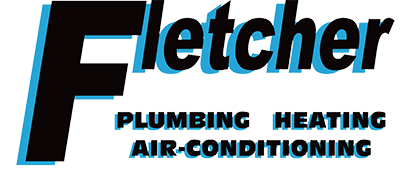
Did you perform a double take when you took a look at your last energy bill? While high energy bills can be the consequence of severe weather events, persistently high bills can also suggest an inefficient HVAC system or your home is using too much energy by other means, like drafty windows or poor insulation.
One of the simplest ways to determine whether your home is wasting energy is by getting a home service professional to perform a home energy audit, also known as a home energy assessment. Keep reading to learn more about home energy audits, including what they are and their advantages.
What Is a Home Energy Audit?
An energy audit is a custom inspection of how much energy your home uses up and whether – and where – your home may be losing or wasting energy. An inspector will go through older energy bills while completing an energy audit to figure out where energy is being wasted and how much.
The ultimate goal of an energy audit is to help homeowners save money on their energy bills by identifying energy-efficient improvements, which can include replacing your existing HVAC system, adding new insulation, sealing up leaks, or replacing drafty windows.
Over the course of the energy assessment, the auditor performs an inspection of the outside and inside of your home. The auditor performs a blower door test on doorways, windows and fireplaces to figure out if there are air leaks in your home. They’ll also evaluate your home’s HVAC system, as well as the ductwork, the water heater, and the insulation in your attic. Some assessments might also include inspecting your current lighting system.
Benefits of a Home Energy Audit
It can be difficult for the average homeowner to know for sure how efficient their home is versus other similar homes in their community. However, lots of energy companies often offer information about where your home ranks when compared with similar homes and whether it’s more efficient, about average, or inefficient compared to your neighbors’ homes. This is a useful starting point to decide if you need an energy audit scheduled.
Some of the benefits of a home energy audit include:
Recognizing How Efficient Your Home Is
It’s worthwhile to learn more about how efficient your home is and where you’re using the most energy. For example, if your ducts are leaking air, it can lead to a large increase in your energy bills and additional wear and tear on your HVAC system as it has to run longer to completely heat or cool your home.
Making Energy-Efficient Improvements
An energy audit can reveal where you need to make energy-efficient changes to save on energy and reduce utility bills. This might include replacing worn-down weatherstripping or installing a new energy-efficient furnace.
Enhancing Health and Safety
Allowing air to slip into your home through doors and windows, or as a result of a lack of insulation can cause excessive moisture to build up, which may negatively impact your home’s humidity levels or encourage mold. This can exacerbate health conditions, particularly for people dealing with asthma or allergies.
Adding to Your Home’s Retail Value
Energy-efficient homes are preferred by homebuyers. You can sell your home more quickly or for more money by telling potential buyers that it’s energy efficient.
How to Do an Energy Audit of Your Home
Although completing an energy audit on your own will not be as comprehensive as choosing a professional, it’ll offer a general idea of how energy efficient your home is. If you don’t discover any issues during the DIY test, then you potentially don’t need to bring in a professional. Try this step-by-step checklist:
- Review your HVAC system. Damaged ducts can lose nearly 20% of conditioned air, contributing to higher energy bills and excess wear and tear on HVAC equipment. If you find leaks, use duct tape to seal them. If your HVAC equipment is old and inefficient, upgrading to a new system can save you a substantial amount on your energy bills. In some cases, it might be better to call a reputable HVAC company to inspect your system.
- Look for air leaks. Air leaks on average can raise the energy bills by 10 to 20%. Inside, look for air leaks in areas where there could be a draft, including along the edge of flooring and near baseboards and electrical outlets. Outside, you can inspect for air leaks around the home’s foundation, siding and mortar. Plug, caulk or seal any air leaks to save money.
- Inspect insulation. If your home is older, it could mean your insulation is too. If you can see the joists, you likely need more insulation.
- Check ventilation. Make sure that all of your kitchen and bathroom exhaust fans are spinning properly, and look for evidence of rot or moisture.
Contact Fletcher Plumbing, Heating & AC for a Professional Energy Audit
If you want professional help finding out how energy efficient your heating and cooling equipment is, contact the HVAC experts at Fletcher Plumbing, Heating & AC today. We’ve proudly supported the residents of Smyrna with quality home services for a long time. Contact us today to request an appointment.
